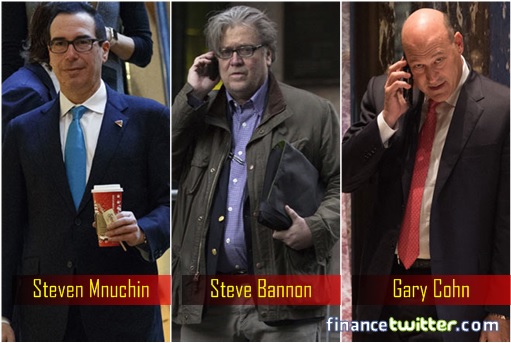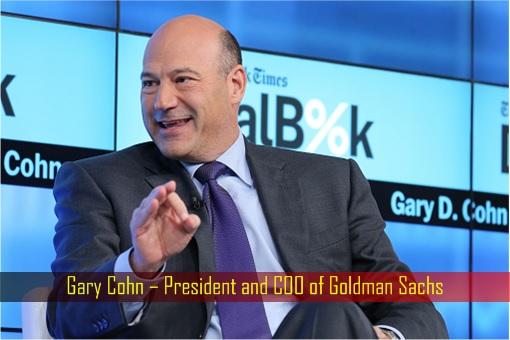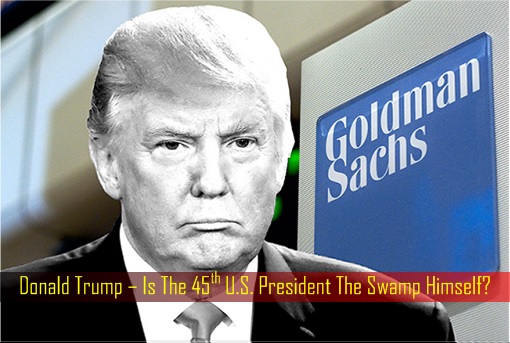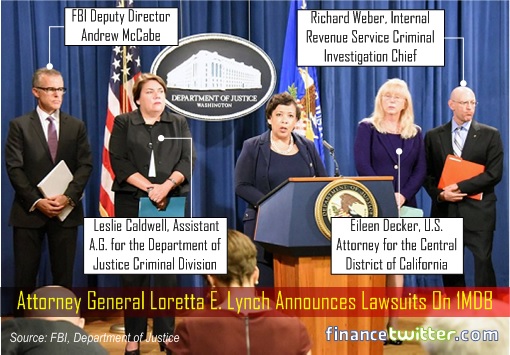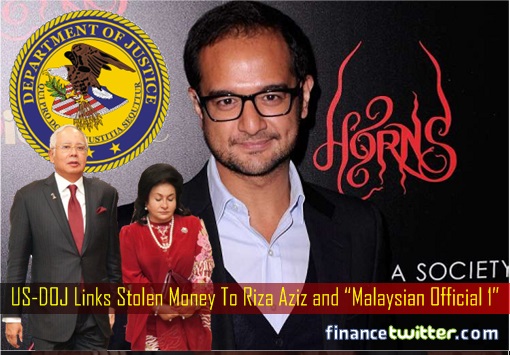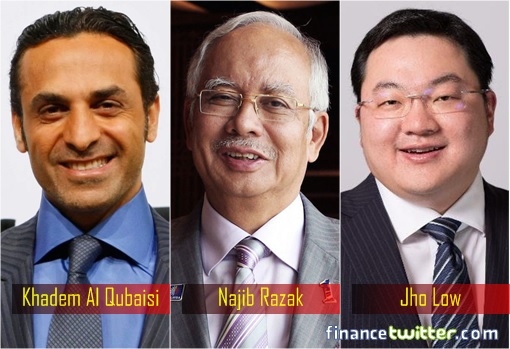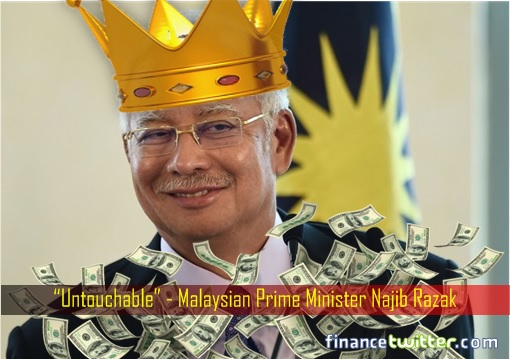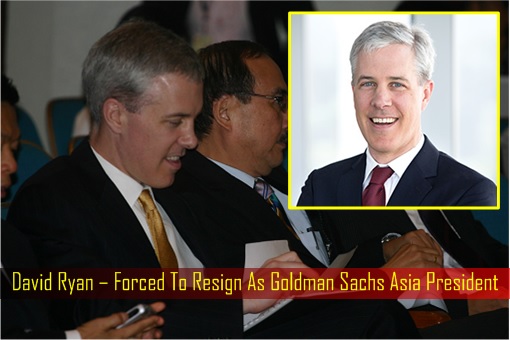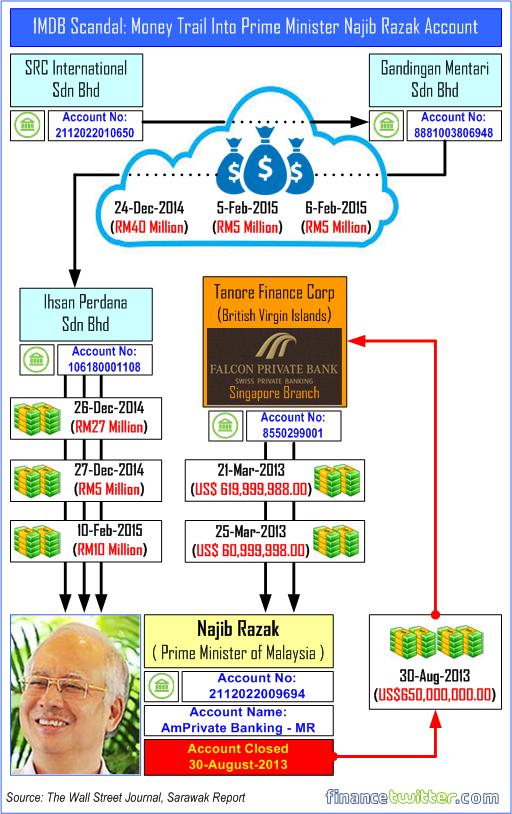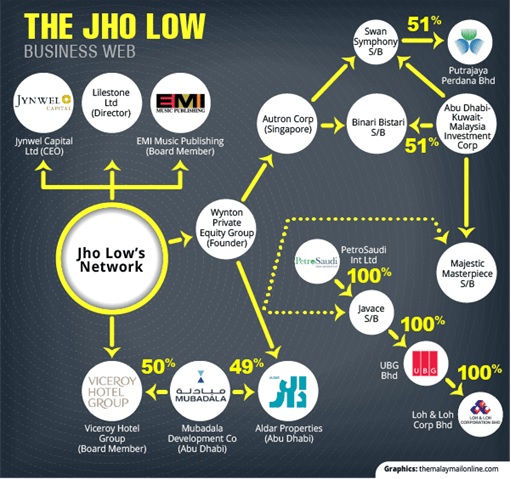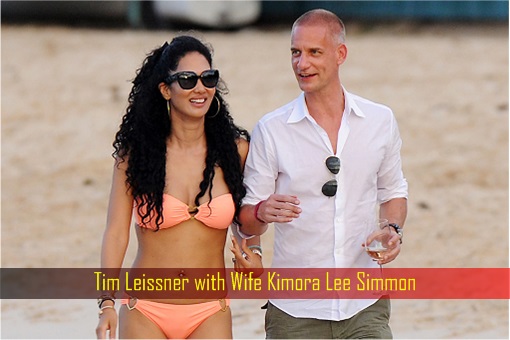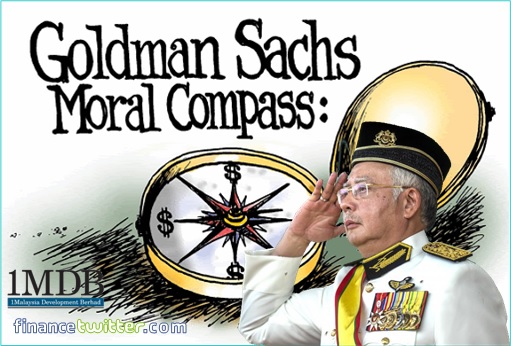Lust night I happened to be watching Ch 521 Australia Plus... and I then felt I must pick up this story to spread it wide far and near. Cos recently my SunnyBoy introducd to dad a piano-teacher buddy who is recovering from Cancer by using both western medical and herbalist treatment.
This story is about DANIELLE TINDLE (and her academician Father...DR. ROBERT, Congrats on your greAt RESEARCH work which gained a new perspective UP CLOSE&PERSONAL...)
Today I interrupted my hideaway in Haitus because I wanted to sharing something UPLIFTING&INSPIRING to close the year 2016 which is KNOT SUCH A GOoD Wan for Malaysians, especially Desi the writHer-BUMmer!
So from GOOGLE.COM, here cometh (but Don't Be a Lazy BUM, you should go to australiaplus to watch the Original telecast from a year ago...YL, Desi)
Your Money Or Your Life
09/05/2016
Introduced by Caroline Jones
Twelve years ago Danielle Tindle came back from the brink of death to survive Hodgkin's Lymphoma. By extraordinary coincidence, it was her own father's groundbreaking stem-cell research which ultimately saved his daughter's life.
Since Danielle was given a second chance at life, this inspirational young woman has made it her mission to advocate for improved services and care for other adolescent and young adult cancer patients. She's become a world leader in the field.
Unfortunately, mid-way through her PhD, she received another devastating diagnosis. With all conventional therapies ineffective, once again Danielle, her father and her medical team are in a race to find the next life-saving breakthrough.
While Danielle will never give up hope of beating her rare cancer, can she beat the system that requires her to pay $5000 a shot for the treatment she needs, while a melanoma patient pays just over $6 a shot for the same drugs?
Australian Story has followed Danielle's journey from the beginning.
Photo: Adam Sebastian West, for Scar Stories.
PROGRAM EXTRAS
VIDEO
RELATED LINKS
)Your Money Or Your Life - Transcript
PROGRAM TRANSCRIPT: Monday, 9 May , 2016
CAROLINE JONES, PRESENTER: Hello. I'm Caroline Jones. Twelve years ago Danielle Tindle beat all odds to survive life-threatening cancer. And in a twist of fate that was almost unbelievable, her aggressive treatment produced a transforming personal side-effect.It all seemed like a happy outcome, but now Danielle Tindle is facing an even bigger challenge.
(Danielle applies make-up and wig before a mirror)
PROF. ROBERT TINDLE, FATHER: Ten years ago I saw her recover from being an absolute skeleton, back to being a normal person again. It's not out of the question that we can do it again this time.
DANIELLE TINDLE: I just never was scared of relapsing. I think I was too busy or too enjoying everything to worry about if my cancer came back. It's not the case now.
JASMINE GAILER: Danielle is someone who has fought really hard to make a difference to people like me. And to see that she's having to go through it again and, um, fight cancer again, is really devastating.
RICHARD VINES, RARE CANCERS AUSTRALIA: She's someone who's contributed enormously to society and to the community. And at this one point in time, where she really needs us to give back, we've abandoned her. And that's got to be unacceptable in anybody's terms.
ELIZABETH TINDLE, MOTHER: It's like putting a gun to your head and saying, "Your money or your life."
(Excerpt from Australian Story, April 2005)
PROF. ROBERT TINDLE, FATHER: Danielle was a daughter who wanted to experience everything in the world; the daughter who was willing to try everything.
DANIELLE TINDLE: Life was pretty much like any normal student. I worked hard, I studied hard. I partied hard. It got to a point where I was feeling fairly... unwell: just dizzy, tired, lethargic. And finally one day I felt a lump on my neck and, um... was diagnosed by a specialist with Hodgkin's lymphoma. After six months of chemotherapy, I had a little break. And then I had one month of radiation. At this stage, everyone was very positive.
ELIZABETH TINDLE, MOTHER: And it went perfectly, according to plan. And she, you know, got rid of the tumour, which was great. She went on a holiday to New Zealand: you know, sent cards back, full of high spirits; and was back a very short time when she started feeling the lumps again. So it was very short-lived.
PROF. ROBERT TINDLE, FATHER: When relapses such as this occurs, the standard form of treatment then is a rather more severe form of chemotherapy. And the outcome, I'm afraid, was very bad. There was no response of the tumour whatsoever to this chemotherapy.
DR DEVINDER GILL, ONCOLOGIST: So we came to the conclusion that her best option would be a really high-dose chemotherapy, followed by a stem-cell rescue.
ANTHONY STEELE, NURSE: I was the nurse involved in taking the stem cells from Danielle and I'm sitting there, explaining to Danielle exactly what was involved with stem-cell transplants. Danielle's father was sitting to the side, not taking particular notice of what I had to say. So as I'm taking a lot of time and energy into describing it, I finally asked Danielle's father, "Have you got any questions for me? Is there anything you want to know?" And he just looked up from his papers and said, "Well, Anthony, I was actually on the team which helped first discover the stem cells in the blood. I don't think I have any questions, but thank you very much."
DANIELLE TINDLE: That's when I discovered that my father had actually discovered CD34s, which are stem cells, back in 1984 or something, when I was four years old.
PROF. ROBERT TINDLE, FATHER: And what emerged was that: hey, look, here you've got a cell that you can use to give to people whose blood systems and immune systems have been wiped out. And that will rescue them.
DANIELLE TINDLE: I understood what his discoveries meant and how huge they were for the scientific world. I mean, stem-cell transplants save people's lives. I felt very proud of him. In my eyes, my father was a lot more interesting than I initially thought. (Laughs)
DR DEVINDER GILL, ONCOLOGIST: Bob did a lot of research in his quest to find a cure. And then he would come and we would meet often and discuss what we could do within the short time which we had.
DANIELLE TINDLE: On the one hand: yeah, he played that scientific role. And on the other hand he was just a father, you know. I mean, I say, "Just a father:" he was my father and he was seeing his daughter very, very sick. And I think that was so hard for him. Before the stem-cells transplant, you have to go through a seven-day concoction of very, very aggressive chemicals that basically knock out your entire lymphatic system.
DR DEVINDER GILL, ONCOLOGIST: We were aware that we were pretty close to a toxicity which may kill the tumour, but may also kill Danielle.
DANIELLE TINDLE: This is when the pain really kicked in. At one stage - I mean, this sounds really gruesome - but I was bleeding out of every orifice, continuously. The toxicity was just too much for my system and my liver just failed. Your bilirubin is supposed to be under 20. Mine got up to 570.
PROF. ROBERT TINDLE, FATHER: I remember the worst night: when her bilirubin hit 570 and it was worsening. It had been worsening all week.
DANIELLE TINDLE: I could see in his eyes that... things were getting very, very difficult for him to deal with.
DR DEVINDER GILL, ONCOLOGIST: I think part of what was driving Bob was that, you know: "Here I am, eminent scientist, working in the field of cancer. And here is my daughter and I'm not able to help her."
DANIELLE TINDLE: And I can actually remember my Dad asking one of the doctors... he asked, when I died, how would I die? And they started explaining how each of my organs would shut down and fail. And I was - I was in the room, you know. I was lying there on the bed, hearing all this: how I was going to die, the process in which I was going to die. I mean, that's so... I mean, that's so confronting. How do you deal with that? What do you do with that?
DR DEVINDER GILL, ONCOLOGIST: She was as close to death as you can get, really. And if she hadn't cro- she may well have crossed the line and come back.
ELIZABETH TINDLE, MOTHER: Then, slowly, slowly, the bilirubin started coming down. You know, under 300: that was brilliant. And then, you know, through the 200s, through the 100s. And it gradually came back to normal, over the month. And it was just an absolute miracle.
DR DEVINDER GILL, ONCOLOGIST: And I've seen some remarkable recoveries, but she has to be one of the more remarkable.
DANIELLE TINDLE: The stem-cell transplant had completely gotten rid of my tumour, 100 per cent. And that was better than anyone had expected.
(Footage of Danielle and Robert in consultation with Dr Gill)
DR DEVINDER GILL, ONCOLOGIST: Pleasingly, your bilirubin is 14: plum normal.
ROBERT TINDLE: Yes!
DR DEVINDER GILL, ONCOLOGIST: For the first time. Isn't that good!
DANIELLE TINDLE: Yeah.
DR DEVINDER GILL, ONCOLOGIST: I think everything is coming together nicely.
DANIELLE TINDLE: Thank God. (Laughs)
(Footage ends)
PROF. ROBERT TINDLE, FATHER: Every loving father gives of his all for his kids. He'll give everything he's got. And that's what I've done: I've given everything I've got.
DANIELLE TINDLE: I've always said to everyone: if it comes back, I'm never having chemo again. But you know what: if it comes back in two or three years' time, I probably will, because it's worth it for the times when you're not sick. You've got to fight. (Laughs) You've got to fight to live.
(End of excerpt from Australian Story, April 2005)
(Footage of Rally for Research, Brisbane, 2011, shot by Channel Ten and Channel Seven. Danielle addresses crowd)
DANIELLE TINDLE: One hundred per cent cancer-free.
(Crowd cheers and applauds)
(At rally) Medical research saved my life.
(Crowd cheers and applauds)
(Footage ends)
DANIELLE TINDLE: I've already faced my own mortality, so I had no fear of death. Well, I've faced cancer: I can talk to strangers. I can focus on something that was meaningful for me: which was helping others. When I went through treatments in 2002-2003, there was absolutely nothing for teenagers and young people: young adults. Um, I was treated in an adult hospital so, you know, I was sitting in waiting rooms with old people having cancer, which is really... it's really hard to see as a young person. You feel like a freak.
(Excerpt from documentary 'Hair', Griffith Film School)
DANIELLE TINDLE: You realise how much of it is part of your identity as a woman. There's a lot of stigma associated with not having any hair.
(Footage ends)
(Footage of Teenage Cancer Trust conference, London, 2012; YouTube)
DANIELLE TINDLE: The beauty of this kind of conference is the collaboration between different disciplines, different perspectives - and different countries, of course.
(Footage ends)
DANIELLE TINDLE: So I was giving big talks around Australia and around the world: talking about my own perspective. But then that increasingly moved into more of a professional role. And my role involved researching and developing models of care for this age group.
JASMINE GAILER: Danielle and I met when she was co-ordinating a conference in Brisbane. And I was asked to go and speak, just from the patient perspective.
DANIELLE TINDLE: So I saw a lot of me in her. I saw a kind of fire in her eyes, a bit of a passion for making a difference. She was fresh out of treatment, to be honest. So she had a lot of very raw and very personal experiences to contribute.
JASMINE GAILER: I was 22 and I was pretty much doing everything a 22-year-old should be doing. So I'd just graduated from uni , and decided to do a round-the-world trip. The symptoms started in my knee in Mexico. And so I had this very sore knee, but I continued to do everything that I would have normally done, because I just figured I had sprained it. So it was really lucky, I guess, that I flew home before getting the diagnosis. I was on my own in the surgeon's office when he said, "You have a mass." It's an osteosarcoma: so it's a bone tumour.
(Jasmine shows the scar on her right knee and thigh)
JASMINE GAILER: I had an operation to basically take out the tumour here. And... had to take a bit of my femur and the top of my tibia. And they replaced it with a titanium hinge. I was really affected by my scar and by my appearance. But I started drawing on my scar a timeline of my experience and I realised it's actually very empowering to reveal your scar to the world.
DANIELLE TINDLE: And then she started Scar Stories, which is an organisation that: initially it was to have photography exhibitions displaying young people and their scars, their cancer scars. And she invited me to be part of that. And I have permanent alopecia as a result of my treatment.
JASMINE GAILER: The patients and survivors that were involved: they were very nervous. But then afterwards: just that weight off their shoulders. One girl talked about feeling like the cloud that was overhead is not overhead anymore, because it's just - it's out there. It's a relief.
DANIELLE TINDLE: You know, I hate the term "cancer sufferer." It's such a disempowering, victimising word: as if we've got no agency in this process, as if we've got no strength. And what Scar Stories does is: really turns that on its head and says, "Actually, I've been through the cancer process. I'm scarred, I've been mutilated, I've been through hell and back. But I'm strong and I can be beautiful."
ELIZABETH TINDLE, MOTHER: She's always had boundless energy, from the time she was a little one. And she's always devoted her whole self to any activity. And what she takes on: she does it with gusto.
DANIELLE TINDLE: So I began my PhD. And it involved interviewing young people from Australia, England and the United States to find out how young people create a sense of meaning and purpose, following a cancer diagnosis.
MARCUS (actor's voice): You finish up treatment and you're just expected to get on with life again. I didn't find any rehabilitation-type process.
NOELLE (actor's voice): I didn't know how to start planning goals like getting a house or getting involved in a romantic relationship.
RICHIE (actor's voice): If I'm in a relationship, I would tell them I had cancer. But I'd never, ever tell them that I'm infertile.
PROF. ROBERT TINDLE, FATHER: These people opened up their hearts to her. And she could identify with a lot of the issues.
DANIELLE TINDLE: Being involved in helping other young people was, in fact, a source of therapy for me.
PROF. ROBERT TINDLE, FATHER: And it's rather ironical that, halfway through her PhD, the new cancer emerged.
DANIELLE TINDLE: September-October 2014, just before my final seminar, I felt scratchy things on my neck. And I went in for an MRI scan and there was a tumour in my neck, right next to my larynx. So I knew I had cancer again.
(Footage of Danielle about to enter MRI machine)
NURSE: Just remember to breathe normally and try to relax. If you have any problems, just call out to us.
DANIELLE TINDLE: OK. Thank you.
(Footage ends)
PROF. ROBERT TINDLE, FATHER: It wasn't a relapse of her Hodgkin's lymphoma: it was a new tumour altogether. That she's got it is almost entirely the result of the draconian treatment she had 10 or 12 years ago for Hodgkin's lymphoma.
DANIELLE TINDLE: So I was told that I would have to have a pharyngolaryngectomy, which is removal of the larynx and - which is your voice box or your vocal cords - right down to the pharynx, which connects your, connects to your oesophagus, so you can swallow. That's a nightmare diagnosis. That's like what horror movies are made of.
(Footage of conference, Flinders Centre for Innovation in Cancer, Adelaide, February 2015. Danielle chats with people prior to seminar)
DANIELLE TINDLE: You can't see it. My neck still looks beautiful. (Laughs)
(Footage ends)
DR MARGIE MCGRATH, ONCOLOGIST: For Danielle it was a scary, horrifying thought, because her voice was so important in terms of her public speaking role, interacting with other people. Having surgery just seemed like such a radical - making life not worth living, basically - that she felt that she would lose her whole quality of life if she had the surgery.
PROF. ROBERT TINDLE, FATHER: We really did have an agonising couple of weeks of deciding... whether to go ahead with this or not. The stance we took in the family was that, ultimately, it was Danielle's decision.
ELIZABETH TINDLE, MOTHER: Either she goes that way and has the operation; or she chooses to die. And that was the choice. My reactions to all this: well, I thought, "She can't go and just cut her neck out." In fact, that's what she was thinking, but I wouldn't have influenced her.
DANIELLE TINDLE: And so we, we went for a second opinion: to Peter MacCallum Cancer Centre in Melbourne. Dad and I went together as the team that we are, to conquer this disease. You know, ever since I was a little girl he would always say, "Come on: tough Tindles, tough Tindles." And it's... (sighs) it's hard 'cause you do look to your Dad to make things better.
(Home video footage of Robert at Peter MacCallum Cancer Centre, Melbourne, February 2015)
ROBERT TINDLE: We've done a deal of homework and it's a question of going through the options.
DANIELLE TINDLE: I'm ready to take this beast on, because that's the kind of person I am. OK. Bye bye!
(Footage ends)
DANIELLE TINDLE: I was given the option of chemotherapy: a very aggressive form of chemotherapy.
(Footage of Danielle in hospital, Brisbane, March 2015. Caption: 'Chemo Day 3')
DANIELLE TINDLE: Whilst I knew this was a pretty heavy-duty drug combo, I didn't expect to be knocked off my feet by day two.
NURSE: It is very nauseating and people do struggle with it sometimes.
DANIELLE TINDLE: I'm just - yeah, so sick.
NURSE: Yeah. It sucks
DANIELLE TINDLE: Ow. I can't do this.
(Footage ends)
DANIELLE TINDLE: Chemo is hell. It is. But if there's a chance of reducing the tumour and shrinking the, the disease, then I'll do it - 'cause I've done that before. I can do that. It gives you hope. You know, if it's six months of hell, I can do six months of hell. I can do a year of hell. Just don't put a full stop, you know, the full stop, which is: rip out your larynx. There's no way, no turning back.
(Footage of Danielle after receiving results of chemotherapy outside Peter MacCallum Cancer Institute, Melbourne, April 2015)
DANIELLE TINDLE: So it's pretty much the worst news you could imagine. There's been no response from the chemotherapy. And in fact, there's been growth.
(Footage ends)
PROF. ROBERT TINDLE, FATHER: She was told, "Well, it is non-resectable. We can't even do the pharyngolaryngectomy now. I'm afraid there's nothing else we can offer you. We recommend you to palliative care."
DANIELLE TINDLE: I just want to get on with everything that I love. And the fact that I have finished my PhD and... I just love life so much. (Cries) And it just takes all that away from me.
(Footage of Danielle at graduation ceremony, Queensland University of Technology, July 2015)
ANNOUNCER: Chancellor, I present for the Doctorate of Philosophy, Danielle Antonia Tindle.
(Assembly applauds as Danielle receives doctorate)
(Footage ends)
PROF. ROBERT TINDLE, FATHER: It really has been an extraordinary achievement. And she's worked during times when she really hasn't felt very well. And it's required a great deal of perseverance on her part to get to this point.
ELIZABETH TINDLE, MOTHER: Elation, but it's: yes, actual tears. I don't think anybody noticed, but I was very emotional. But she's done it and, um... wonderful.
DANIELLE TINDLE, PHD: I'm very happy to be here. I didn't know if I would be able to get here today. So being able to smile and really take it all in: it's kind of bitter-sweet, though, because... you know, there's a lot of talk about futures. For me it's not about that: it can't be about that.
(Footage of Danielle visiting her father. She opens the door to his study)
DANIELLE TINDLE: Oh, hello.
ROBERT TINDLE: Hello! What are you doing here?
DANIELLE TINDLE: I'm seeing puppies. Have they had their haircuts?
(Footage ends)
PROF. ROBERT TINDLE, FATHER: We've tried all conventional approaches. We've exhausted those. I've decided to push forward, in fact: push the frontiers a bit more.
DANIELLE TINDLE: The thing about my Dad is that he does project into the future. And so he has contingencies for everything. He has plan A, B, C, D, E, F. He will explore, he will research, he'll scour the world for a solution to this. I trust him to do that.
PROF. ROBERT TINDLE, FATHER: What we've got here is a comparison of two drugs which are being used in melanoma, quite successfully. Whether it works in neuroendocrine carcinoma is yet to be found out. And Danielle will be the guinea pig in this, I guess. I spend a good part of my time thinking about Danielle's treatment: what do we do "if". And we really are very much running out of things to do now. In fact, we've run out of them several times - and at the last, at the eleventh hour, you know, we've managed to dream up something else.
(Danielle and Robert have an appointment with Dr Margie McGrath)
ROBERT TINDLE: How nice to see you again.
DR MARGIE MCGRATH, ONCOLOGIST: Hi, Robert. Nice to see you too. Sorry to keep you waiting...
PROF. ROBERT TINDLE, FATHER: So, PD1 blockade could, would be applicable to Danielle in spite of her RB and P53 mutations. Would you agree?
DR MARGIE MCGRATH, ONCOLOGIST: Yes.
(Footage ends)
DR MARGIE MCGRATH, ONCOLOGIST: We had to look at novel treatments that weren't funded. Obviously Danielle's father, being a professor in translational research, was, you know, more knowledgeable than me in this area. Then we started looking at immunotherapies. They're something very exciting within oncology over the past 12-18 months. But it does, you know, take quite a while for things to be able to get listed on the PBS - and these drugs are extremely expensive.
(Footage of Danielle at Brisbane hospital, February 2016)
MEDICAL RECEPTIONIST: Hi, Danielle. I just have paperwork here to sign. And the amount to pay today is $4,752.65.
DANIELLE TINDLE: Yep.
(Footage ends)
PROF. ROBERT TINDLE, FATHER: If you're a melanoma patient and your chemotherapy happens to be one of these antibodies, you'd be paying about $6.50 a shot. And in the adjacent cubicle there'd be someone like Danielle, who is paying $5,000 a shot.
RICHARD VINES, RARE CANCERS AUSTRALIA: If it was melanoma, then all of our taxes would be paying for Danielle's drugs. But because it's not melanoma; because it's rare and not listed on the PBS: then we have to find another mechanism to pay for it.
And it may well be that that includes Danielle's life savings or house. And it causes huge financial distress - and that's just... yeah, it's wrong.
DANIELLE TINDLE: I'm waking up in the night, worrying about this kind of stuff, my mind racing. And I've sent umpteen emails to cancer organisations and philanthropic foundations. And you know, there's nothing that they can do to ease my financial burden, other than small amounts of philanthropic support that I have had, which I'm very grateful for, of course.
RICHARD VINES, RARE CANCERS AUSTRALIA: I don't think it's fair. Nobody thinks it's fair. If a patient is on a drug for $100,000 a year, it's because it's working. And that's not a big price to pay to keep somebody alive.
(Footage of Danielle in appointment with Margie McGrath, Brisbane, April 2016)
DR MARGIE MCGRATH, ONCOLOGIST: Hi. How did everything go with your radiation?
DANIELLE TINDLE: Um, it wasn't too bad, actually. Swallowing is good, breathing's good. I'm not coughing as much.
DR MARGIE MCGRATH, ONCOLOGIST: Alright.
(Danielle and Margie hug)
DANIELLE TINDLE: Thank you so much. It's lovely to see you.
DR MARGIE MCGRATH, ONCOLOGIST: You really do look good.
DANIELLE TINDLE: Thank you...
DR MARGIE MCGRATH, ONCOLOGIST: It's great to see you looking happier.
DANIELLE TINDLE: You look good too.
DR MARGIE MCGRATH, ONCOLOGIST: Thank you. (Laughs)
(Footage ends)
DANIELLE TINDLE: I believe in medical science. You know, live another six months: something else will come along. Right now - sitting here right now - I'm not scared. And I actually feel pretty OK and I believe that these immunotherapy drugs are gonna do their - the trick.
DR MARGIE MCGRATH, ONCOLOGIST: Danielle's sort of said to me, you know, "I don't want you to give up on me." And that is hard, because there does come a point where there aren't... there isn't any more opt.. you know, treatment options left.
(Elizabeth visits Danielle, bringing her poodles, who excitedly jump on and lick Danielle)
DANIELLE TINDLE: Hello.
ELIZABETH TINDLE: Sorry, I've invaded...
DANIELLE TINDLE: Hello, Mum. Hello.
ELIZABETH TINDLE (laughs): Did you notice I'm here, too?
(Footage ends)
ELIZABETH TINDLE, MOTHER I'm a person of now. And Danielle's here and still a very strong force. And a lot of wonderful times we have together.
(Footage of Danielle and Elizabeth watching TV. Music: 'Skye Boat Song' [theme from TV series 'Outlander'], performed by Bear McCreary featuring Raya Yarbrough)
ELIZABETH TINDLE, MOTHER: I've never thought of doom and gloom with regard to Danielle. She'll always be here.
INTERVIEWER (off-screen): Well, she's done it before?
ELIZABETH TINDLE, MOTHER: She has. She's done it before. And knowing the will and the strength of that young woman, it's going to take a lot to stop her going on.
PROF. ROBERT TINDLE, FATHER: It's not going to be easy, but I know how to accept it if she dies. It'd be a celebration. It'd be a celebration of Danielle. And she hasn't given up, you know. And most people would have given up long, long ago.
DANIELLE TINDLE: I can't not hope. I just feel like I'm too vital a being. Mum once wrote a letter to me and she wrote, "Danielle Tindle is a very vivacious creature" - and she underlined the word "vivacious". And I... that's how I feel. I look in the mirror and I go, you know: "I'm just, I'm unstoppable."
END CAPTIONS:
The Federal Department of Health says the company that produces the immunotherapy drugs "has not applied" for the drugs to be listed on the PBS for neuroendocrine tumours, and that the medicine "has not been registered by the TGA" for this cancer.
Dr Margie McGrath says she's "prescribing the medicine to Danielle based on genomic profiling," which shows that Danielle's tumour is "very similar" to small-cell carcinoma in which immunotherapy drugs have shown some promising results.



